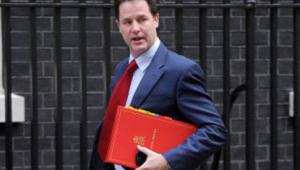5 April 2011
The government plans to tackle the causes of child poverty and barriers to social mobility, not just the symptoms, Deputy Prime Minister Nick Clegg has said.
Launching the social mobility strategy Opening doors, breaking barriers today, he said it focused on inter-generational social mobility – ‘ensuring that everyone has a fair chance to get a better job than their parents’.
A new Social Mobility and Child Poverty Commission has been established, initially chaired by former Labour minister Alan Milburn, to report to Parliament on progress. And each Whitehall department’s business plan will include social mobility indicators.
The Cabinet Office has highlighted examples of the barriers to social mobility that the government wants to tackle. These include higher numbers of poorer children reaching top universities. Some 20% of children receive free school meals, yet fewer than 1% of these go on to Cambridge or Oxford universities, the strategy noted.
It also showed the prevalence of alumni of independent schools in leading jobs. Some 70% of High Court judges and 54% of chief executives of the largest companies had attended these schools, compared with just 7% of the population.
Clegg said: ‘Fairness is one of the fundamental values of the coalition government.
‘In Britain today, life chances are narrowed for too many by the circumstances of their birth: the home they’re born into, the neighbourhood they grow up in or the jobs their parents do. Patterns of inequality are imprinted from one generation to the next.’
The strategy includes measures for the pre-school, school, transition to work and adult stages of a person’s life. These include: 15 hours a week of free education for disadvantaged two-year-olds, and all three- and four-year-olds; the previously announced £2.5bn pupil premium to encourage schools to recruit disadvantaged pupils; a £150m National Scholarship Programme for students from poorer backgrounds; and an end to informally arranged internships in the civil service and an expectation that other employers will also end this practice.
The child povertystrategy covers actions to be taken by 2014, and retains the previous government’s commitment to end child poverty by 2020.
Children’s minister Sarah Teather said: ‘We re-commit ourselves to ending child poverty by 2020 and breaking the cycle of intergenerational disadvantage that has blighted children’s lives and aspirations for too long.’




















